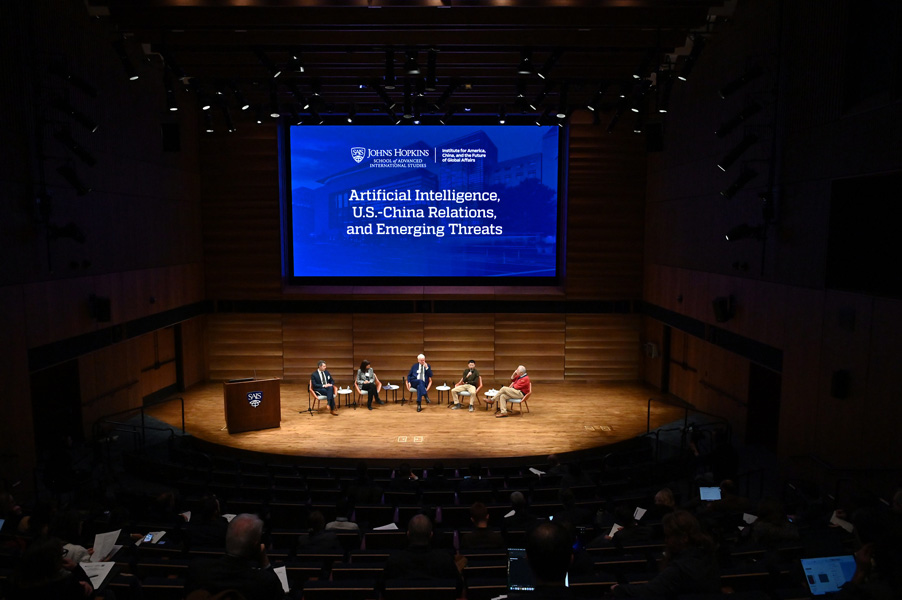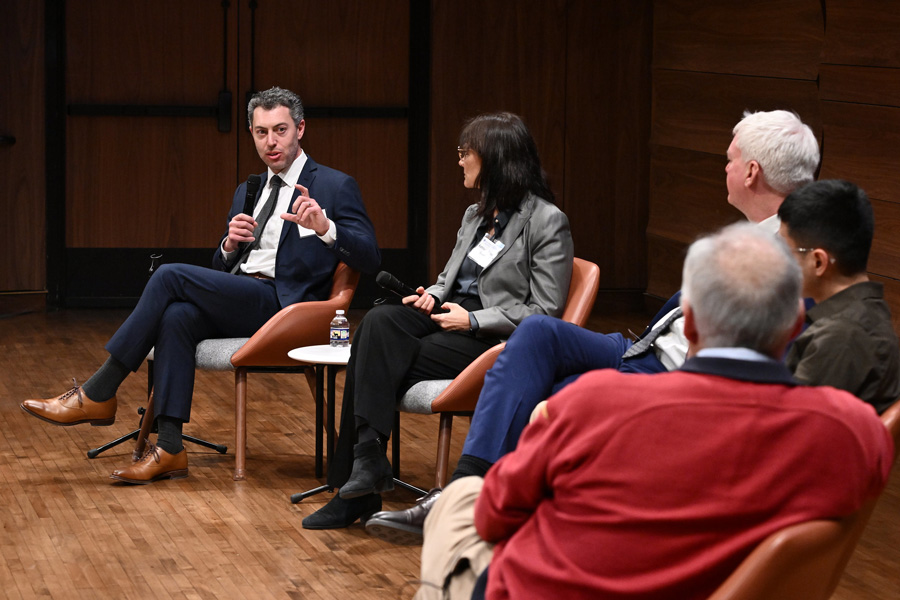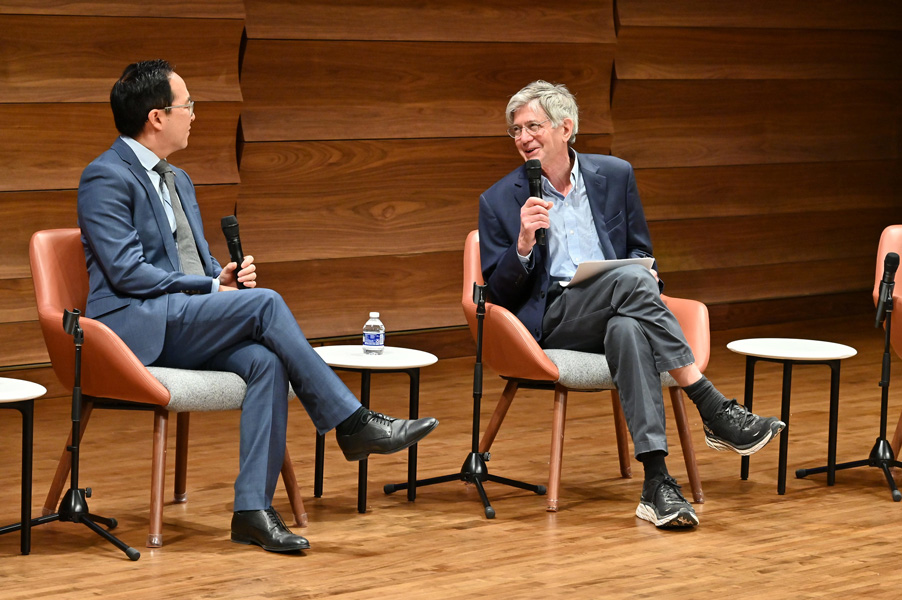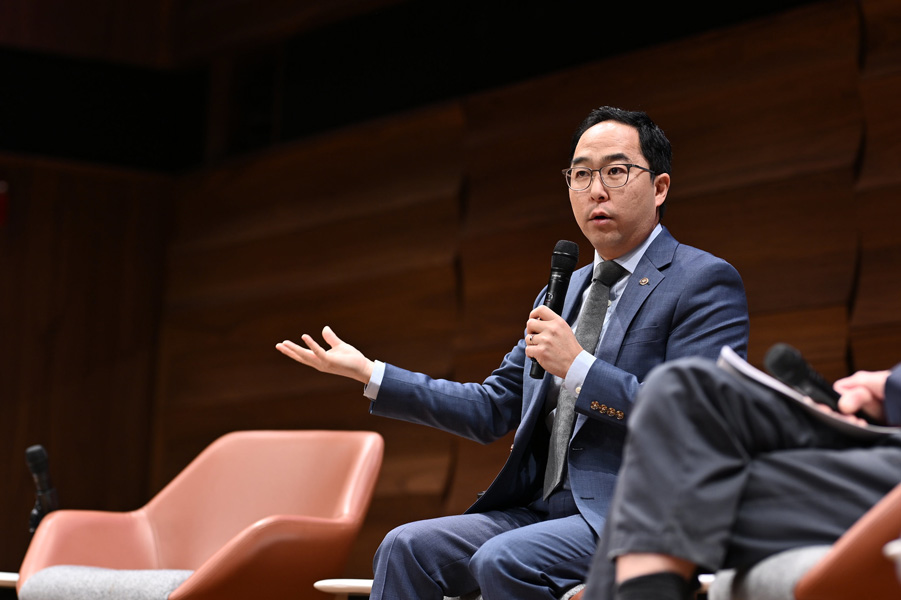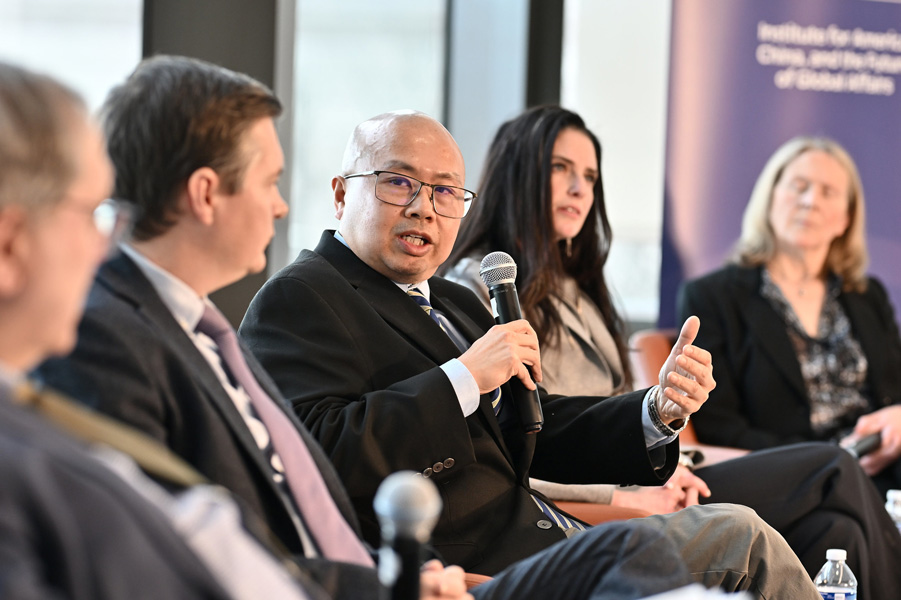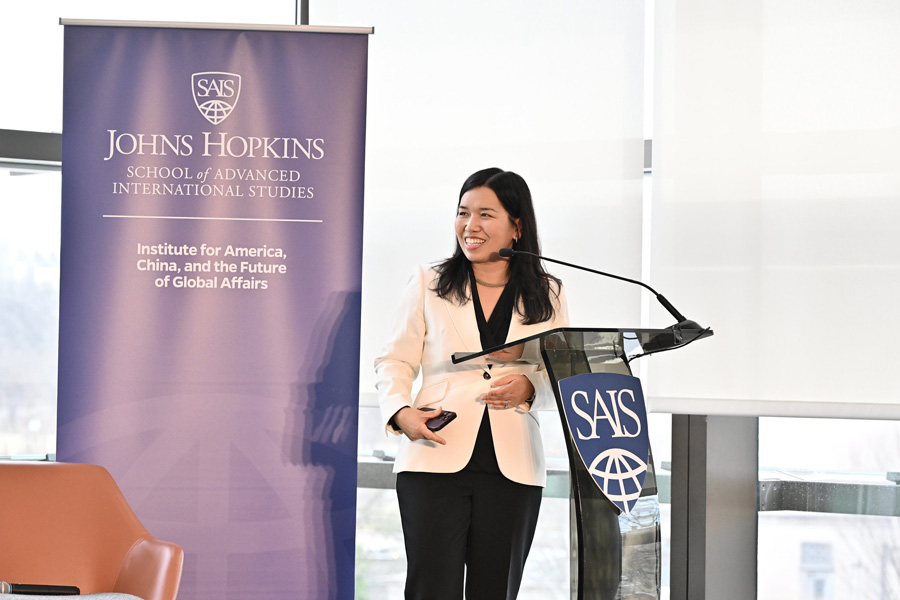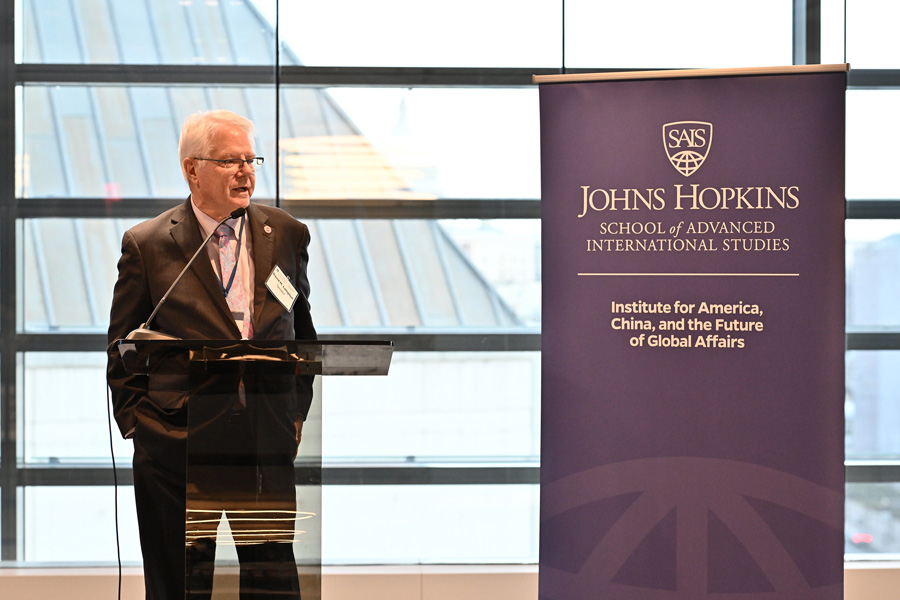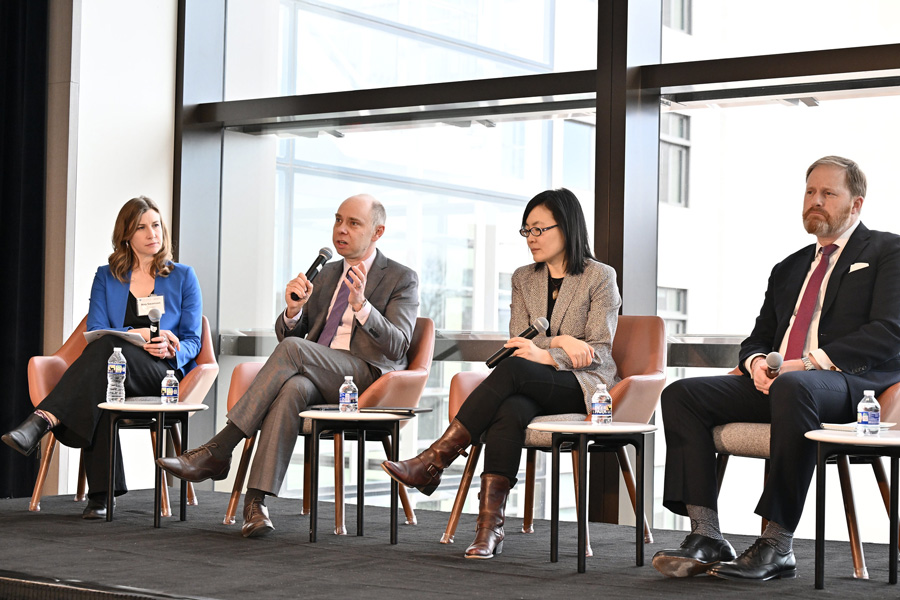Getting China Right: Johns Hopkins SAIS Launches New Institute
February 3, 2025
On February 3, 2025, Johns Hopkins School of Advanced International Studies (SAIS) celebrated the public launch of a new institute, the Institute for America, China, and the Future of Global Affairs (ACF), established to add rigor and reason to public and policy discussions on China and the range of domestic and international issues that intersect with its global role.
The day-long event titled “Getting China Right” featured prominent speakers and experts discussing the economic, technological, and political complexities of the relationship between China and the United States. Another important part of the proceedings was the publication of a report that grew out of a workshop held in October 2024 to assess domestic challenges of the intensifying competition that shape U.S.-China relations and offer recommendations.
The day began with welcoming remarks from SAIS Dean James Steinberg, and Jessica Chen Weiss, the founding faculty director of ACF, setting the stage for a series of insightful discussions. Steinberg then sat down with U.S. Senator Andy Kim of New Jersey for a fireside chat on “What’s at Stake in U.S. Policy on China?” Senator Kim underscored the need for a comprehensive approach that balances U.S. national security with economic engagement with China, emphasizing bipartisan efforts to strengthen domestic resilience. “The question is really how does America navigate a multipolar world where we are no longer an undisputed hegemon?” the senator said. “We are struggling to determine where we see ourselves.”
The launch event also featured several panels:
Artificial Intelligence, U.S.-China Relations, and Emerging Threats:
This panel discussed the implications of AI on U.S.-China relations and the emerging threats posed by technological advancements. Speakers included Henry Farrell, a professor at Johns Hopkins SAIS; Jim Mitre, vice president and director of global and emerging risks at RAND; Kathleen Fisher, director of the information innovation office at the Defense Advanced Research Projects Agency (DARPA); and Jeffrey Ding, assistant professor of political science at George Washington University. Richard Danzig of the Johns Hopkins University Applied Physics Laboratory moderated the discussion.
China’s Economic Challenges, U.S. Interests, and the Global Economy:
Moderated by Ana Swanson, a reporter who covers trade and international economics for The New York Times, this panel explored the economic challenges China faces, including its trade policy and slowing growth, and their impact on U.S. interests and the global economy. The discussants were Yuen Yuen Ang, a professor of political economy at Johns Hopkins University; Matt Turpin, a visiting fellow at the Hoover Institution specializing in U.S. policy toward China; and Jeremy Wallace, a professor at Johns Hopkins SAIS.
Getting China Right at Home: Report Launch and Panel Discussion:
The launch of the “Getting China Right at Home” report was a focal point for discussions on the domestic challenges posed by U.S.-China competition on how these domestic policy discussions shape the engagement between the two countries. David Sanger, a New York Times reporter, moderated the panel in which the following speakers discussed the findings of the new report: Ho-Fung Hung, a professor at SAIS and Johns Hopkins University; Margaret Pearson, a professor at the University of Maryland; Samm Sacks, a research scholar and senior fellow at Yale Law School; and Patrick Toomey, deputy director of the national security project at the American Civil Liberties Union.
In the last afternoon event before the closing reception, Stephen Hadley, a former National Security Advisor, engaged in a conversation with ACF’s inaugural faculty director, Jessica Chen Weiss, on “The Way Ahead: A Conversation on the United States, China, and the Future of Global Affairs.” Hadley emphasized that the United States must pursue its national security objectives in a way that supports and reinforces its soft power rather than undermines it.
The day concluded with an evening reception, during which David M. Lampton, a professor emeritus of China Studies and senior fellow in the Foreign Policy Institute at SAIS, delivered remarks celebrating the launch of the Institute for America, China, and the Future of Global Affairs.
